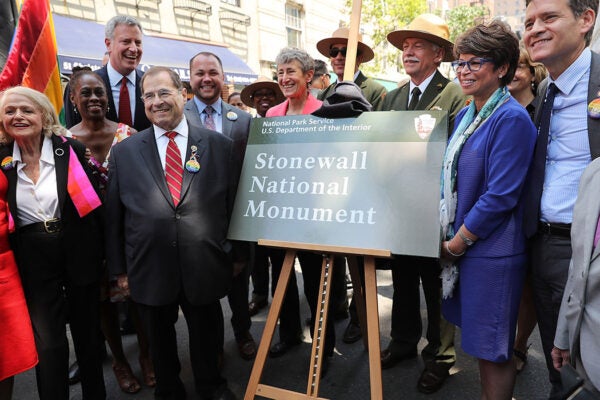The Fifteenth Amendment: Annotated
The brevity of the Fifteenth Amendment of the US Constitution belies its impact on American voting rights.
“Declaration of Sentiments”: Annotated
The document that came out of the 1848 Seneca Falls Convention extended the long-lived and hard-fought movement for women’s rights in the United States.
The Bill of Rights: Annotated
Proposed as a compromise to ensure the ratification of the new US Constitution, the Bill of Rights has become a critical protector of civil liberties.
Marbury v. Madison: Annotated
Justice John Marshall’s ruling on Marbury v. Madison gave the courts the right to declare acts and laws of the legislative and executive branches unconstitutional.
Stonewall National Monument Declaration: Annotated
In June 2016, President Obama proclaimed the first LGBTQ+ national monument in the United States at the site of the 1969 Stonewall Uprising in New York City.
The Fugitive Slave Act of 1850: Annotated
The Fugitive Slave Act erased the most basic of constitutional rights for enslaved people and incentivized US Commissioners to support kidnappers.
The Alien Enemies Act: Annotated
Confused about the oft-mentioned Alien Enemies Act? This explainer, with links to free peer-reviewed scholarship, may help clear things up.
Joseph McCarthy in Wheeling, West Virginia: Annotated
Senator Joseph McCarthy built his reputation on fear-mongering, smear campaigns, and falsehoods about government employees and their associates.
“Lynch Law in America”: Annotated
Ida B. Wells-Barnett, whose January 1900 essay exposed the racist reasons given by mobs for their crimes, argued that lynch law was an American shame.
Citizens United v. Federal Election Commission: Annotated
The 2010 decision, enabling the rise of super PACS, made possible new and more covert mechanisms for funding election campaigns in the United States.









